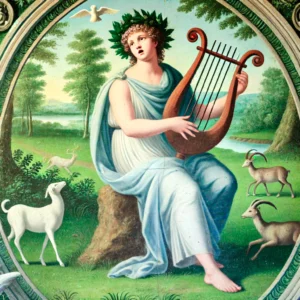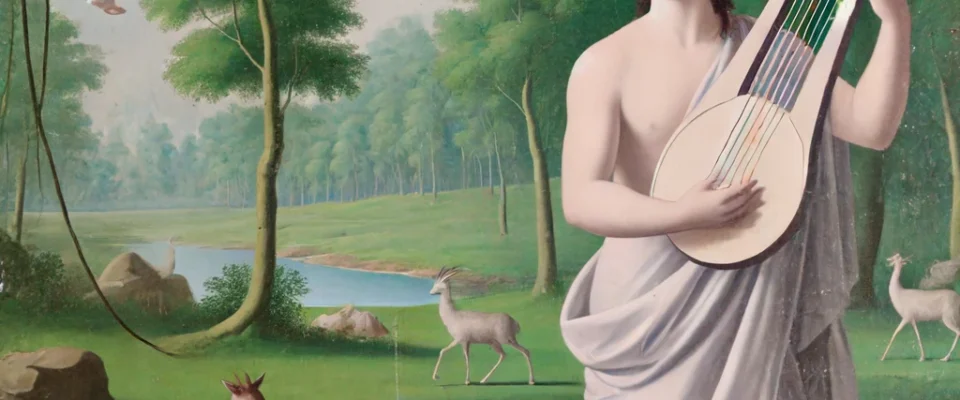Orpheus is one of the most famous and captivating figures in Greek mythology, known for his extraordinary musical and poetic talents. Here are some detailed facts about Orpheus:
- Origins and Family:
- Orpheus is the son of King Oeagrus of Thrace (in some versions, his father is the god Apollo) and the Muse Calliope, the patron of epic poetry.
- From his mother, Orpheus inherited his musical and poetic talents, making him an exceptional musician and poet.

- Talents and Symbols:
- Orpheus is renowned for his lyre, an instrument he played with such skill and emotion that it could soothe all living things, from humans to animals, and even plants and stones.
- His music was so powerful that it could calm the spirits of the underworld.
- Famous Myths:
- Orpheus and Eurydice: This is Orpheus’s most famous story. Eurydice, his beloved wife, died from a snake bite. In his grief, Orpheus decided to descend into the underworld to bring her back. Using his musical talents, he softened the hearts of Hades and Persephone, the rulers of the underworld, who agreed to let Eurydice return with him on the condition that he not look back at her until they had both left the underworld. Unfortunately, Orpheus could not resist and looked back before they were fully out, causing Eurydice to vanish forever.
- Death of Orpheus: After losing Eurydice a second time, Orpheus led a solitary life, rejecting the love of all women. Eventually, he was killed by the Maenads, the female followers of Dionysus, for refusing to worship the god.
- Influence and Legacy:
- Orpheus is regarded as a symbol of eternal love and artistic devotion. His story with Eurydice has inspired numerous works of art, poetry, music, and drama throughout the ages.
- He is also considered the founder of Orphism, a mystical religious movement in ancient Greece with teachings about the salvation and immortality of the soul.
Orpheus is a unique character in Greek mythology, remembered not only for his extraordinary musical talent but also for his great love and tragic story with Eurydice. His tale demonstrates the power of art and love, as well as the limitations and tragedies of the human condition.

